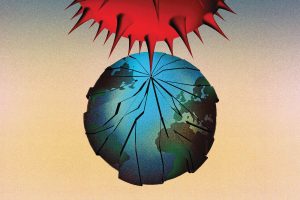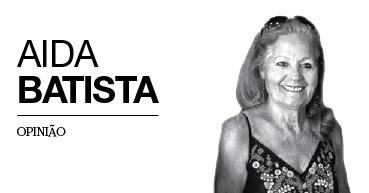“Befriending Uncertainty” in a Post-Covid World

The pandemic has had far-reaching consequences beyond the spread of the disease itself and efforts to quarantine it. Truly, it has resulted in major political, cultural, and social implications. Months after the activation of emergency measures globally, our society is still adapting to a new lifestyle, social barriers to communication, intimacy, and collaborating with one another. Currently, there is an ongoing debate between those who want to shorten the lockdown and those seeking for even stricter measures. Chiefly, they’re focused entirely on these two aspects: health and economy. Which of course, are the central concerns amongst many this moment.
From an economic point of view, the impact on trade, tourism, entrepreneurial and individual activities, and finance is frightening. In recent times, the words recession, depression, and structural crisis have become buzzwords throughout the pandemic. However, from a medical point of view, we have gone through several phases. At first, we tried to deny the reality of COVID, until… it began to attack our family members, friends, and eventually our way of conducting everyday life. We can no longer afford to be ignorant, as the issue of the matter has permanently changed our lives for years to come.
The world over, national and local lockdowns have highlighted the contrasts between the lives of the haves and the have nots. Plenty of Hollywood celebrities lamented the inconvenience of cancelled performances and staying home in their mansions without access to their glam teams. But in the meantime, hundreds of millions of people living hand to mouth across the globe struggled to find sustenance. In South Africa, one of the poorest nations on the planet, 55% of the population struggled to provide for their youth and children. Yet, trends such as baking banana bread, brewing pineapple beer, clocking garden marathons and binging on Netflix rose in popularity. Since lockdown began, it has become starkly clear how beleaguered we are, not just by uncertainties. Rather, it has become abundantly how privileged people are, in comparison to those who live paycheck to paycheck.
The dispiriting irony about these contrasting daily lives is those least responsible for creating the predicament have suffered the most. The same can be said for the fallout that resulted from extreme heat, floods, drought, air pollution – and the list goes on. Now, we realize the effect of the pandemic is long-lasting; something for the history books. Still, we struggle to grasp the real impact. Around the world, many questions are being asked about how we go forward from here… what will it be? How will society look after coronavirus is done and over?
We have become a deeply interconnected world, connected by the necessity of globalisation and social media. Issues that affect some people can send shockwaves, eventually striking the lives of all. Six degrees of separation is the notion that all people on average have six or fewer, social connections away from one another. As a result, a chain of “a friend of a friend” statements can be made to connect any two people in a maximum of six steps. Cue Covid-19 in 2020, suddenly, it becomes abundantly clear just how connected we humans actually are, not only with one another but also with the natural world, that we laid bare.
Read more articles about Covid-19.
During COVID, everyone has struggled immensely. From distancing ourselves from loved ones to job insecurity, we have all suffered. The guidelines we follow are tough and take an enormous toll on our mental health. Under Federal and Provincial government guidelines, we as Canadians have been restricted from conducting ourselves freely in public and private settings. For the most part, citizens acknowledge the authority of these guidelines and follow them. With the promise of a vaccine, we are getting closer than ever to this reality. While the vast majority count down the days, unrealistic and premature hyping of the vaccine can place false presumptions in people’s minds. It is highly unlikely that we will go back to “normal”, as we have seen the devastation it caused.
I think there is a tremendous likelihood of conflict, social discord and unanticipated consequences with the arrival of the vaccine. Recently, people have stated that they will not get the vaccine and that limits our ability to create herd immunity, which provides protection for those who cannot get the vaccine or have not gotten the vaccine. Communities, co-workers, friends, and families will be faced with tough decisions. From the topic of how to safely socialize to sending children to school, issues will arise for everything. The virus will still be circulating, regardless of whether or not there is a widely available vaccine. In addition, there are likely going to be issues regarding vaccine distribution and the potential for inequalities. Sadly, the virus will not disappear when the vaccine is deployed.
After enduring so many months of unprecedented trials, are we on the brink of going back to normal? Will we understand the mechanisms that will guide us to going back to normal? How will we respond? In my mind, a vaccine will bring an end to the pandemic at some point in the near future. But what the world looks like after that is a lot less clear. I believe the process of post-humanization is well under way, we may look back on 2020 and the coronavirus crisis as a crossing over. A time in which our relationship to core aspects of our humanity is fundamentally remade. In particular, I believe we are seeing meaningful recalibrations of our relationship to identity, labour, health and love. In short, the post-human era is beginning in earnest.
While COVID-19 has landed us in a position where we are suffering from a loss of control, there are many things over which you can have influence in the coming months and years. For those of us that have the privilege to live within democratic societies, we can choose to frame ourselves not as passive consumers or spectators of our circumstances, but as participants who have agency over our lives. Many small actions amount to ripple effects that can turn the tide on some of our greatest challenges. A mindset of possibility is the antidote to fear.
We have a golden opportunity to reimagine our world and reframe many of the taken-for-granted narratives that inform the way we live. That which was previously thought to be impossible or at the very least in the “too hard/too busy” basket-community coherence, ecological equilibrium, a stable climate, gender equality, and a more equitable society in general-are suddenly a little bit more within our reach that we had previously realized. I predict we will take the lessons handed to us by our time dealing with the virus and make our world a better place. It may not be easy, but I have hope for the hope.
Sara Isabel Dias/MS








Redes Sociais - Comentários